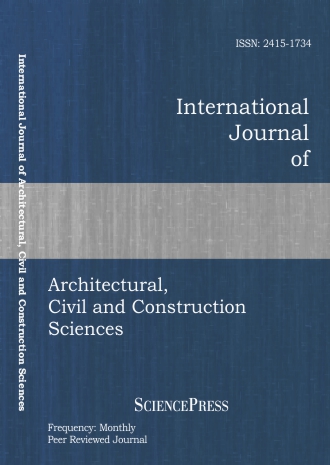
Scholarly
Volume:3, Issue: 10, 2009 Page No: 387 - 393
International Journal of Architectural, Civil and Construction Sciences
ISSN: 2415-1734
Evaluation of Eulerian and Lagrangian Method in Analysis of Concrete Gravity Dam Including Dam Water Foundation Interaction
Because of the reservoir effect, dynamic analysis of concrete dams is more involved than other common structures. This problem is mostly sourced by the differences between reservoir water, dam body and foundation material behaviors. To account for the reservoir effect in dynamic analysis of concrete gravity dams, two methods are generally employed. Eulerian method in reservoir modeling gives rise to a set of coupled equations, whereas in Lagrangian method, the same equations for dam and foundation structure are used. The Purpose of this paper is to evaluate and study possible advantages and disadvantages of both methods. Specifically, application of the above methods in the analysis of dam-foundationreservoir systems is leveraged to calculate the hydrodynamic pressure on dam faces. Within the frame work of dam- foundationreservoir systems, dam displacement under earthquake for various dimensions and characteristics are also studied. The results of both Lagrangian and Eulerian methods in effects of loading frequency, boundary condition and foundation elasticity modulus are quantitatively evaluated and compared. Our analyses show that each method has individual advantages and disadvantages. As such, in any particular case, one of the two methods may prove more suitable as presented in the results section of this study.